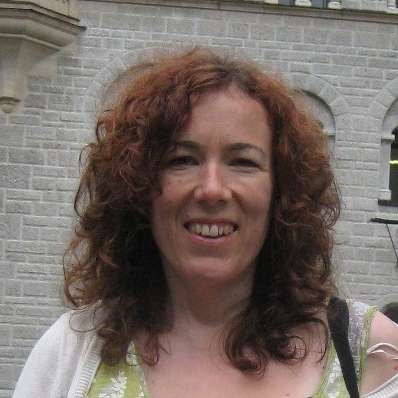J.S. Bach’s Mass in B minor was described by its first publisher as “the greatest musical work of art of all times and nations”. It’s also the culmination of one man’s great life of musical creativity, and a great personal statement of faith. Such an important and well-loved work as this places huge extra demands on performers, and Harry Bicket and the orchestra and choir of The English Concert rose admirably to the challenge with a stellar performance last night at the BBC Proms.
From the bold opening statement of the Kyrie, the chorus produced a full and well-balanced sound, with sensitivity that allowed the important moments in each part to shine through: the bass statement of the Lutheran plainchant in the Confiteor movement of the Credo rang out, and all parts stepped aside for the lovely first alto lead partway through the Sanctus. The mixed male and female alto line was particularly impressive, with some lovely rich singing low in the register, such as in the first Kyrie and the slower movements of the Credo. These slow Credo movements that describe Christ being made man and crucified were sung very simply, without any fuss, letting Bach’s gorgeous harmony speak for itself, although at this central moment there was unfortunately a slight loss of diction.
Harry Bicket, conducting and playing harpsichord, took most of the work at a fairly steady speed; this worked well in such a big venue, and allowed us to savour all the details of Bach’s orchestral writing. The solo instrumental accompaniments to the arias were especially enjoyable, with the solo flutes, oboes, solo violin and horn all taking equal roles with the vocal parts. The tempi did pick up considerably in the fast fugal choral passages, which sparkled and danced: the semiquaver runs were immaculately smooth; the tricky bass passage on “Et iterum venturus est” was simply heroic; and the Baroque trumpets added extra glitter throughout without ever overpowering the choir. (And if there were an Olympic gold medal for brass trills, it would have been won easily tonight.) There were also some sensitive dynamic contrasts, such as a lovely diminuendo partway through the Gratias agimus tibi, and the woodwind interlude after the first Kyrie was soft and mellow.
The solo parts were taken by a quintet of young Baroque specialists, with Carolyn Sampson a late replacement for Malin Christensson. Sampson and fellow soprano Joélle Harvey (making her Proms debut) blended beautifully in the Christe eleison duet, both voices light and clear, although I did struggle to hear them, even from the stalls. As in all the other duets, there was an impressive degree of communication between the singers, and they took the trouble to direct their singing to all parts of the audience. Bass Matthew Rose produced a big sound but still managed to sound delightfully nimble in the runs. His second solo, Et in spiritum sanctum, was better than the earlier Quonium tu solus sanctus, perhaps as he settled into the Albert Hall’s vast space. The problem for any bass soloist in a period performance of the B minor Mass is that all eyes and ears are drawn to the natural horn accompaniment of the Quonium, played here by Ursula Paludan Monberg, who produced a crisp and well-controlled sound. Tenor Ed Lyon was up against the beautifully clear flute section in the Benedictus, and like Rose, he got better as the evening went on, blossoming into a relaxed and silky tone.
The undoubted star of the whole evening was, however, countertenor Iestyn Davies. His first solo, the Qui sedes, filled the hall with a rich, creamy and very masculine sound, that avoided all the pitfalls of countertenor singing, for he was never shrill or piercing. His long, breathless phrasing in the Qui sedes was mesmerising, and he blended nicely with Joélle Harvey in their duet. His Agnus Dei solo, however, was on another level; his tone and subtle expressivity had me absolutely transfixed. The world could have ended and I wouldn’t have noticed.
Bicket and Davies brought the Agnus Dei to a beautifully quiet close and gave us a tantalisingly long pause before unfurling the powerful Dona nobis pacem chorus that closes the work. This repeats the music from an earlier movement in the Gloria, and the English Concert’s first statement of it had given a hint then of the magnificence that was to follow. From a quiet and controlled beginning, the music slowly uncoiled in a sinuous, organic whole, growing and flowering until it reached its climax with the final blaze of trumpets, concluding what was, for me, a near flawless performance. Bicket obviously wanted to give us a moment of silence at the end, which would have been nice, but the audience were having none of it, erupting into enthusiastic applause almost before the last note finished.


